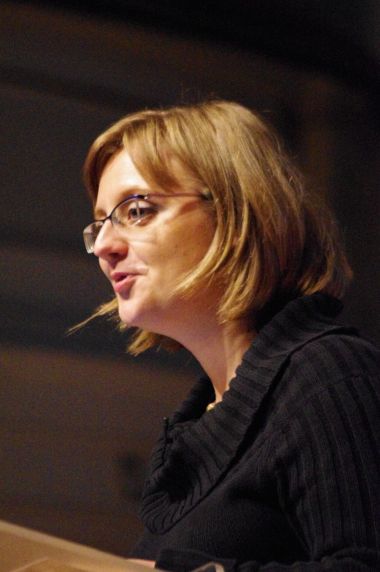Single and happy: nailing the myth that marriage is everything
Christians have adopted a "contagious myth" about marriage and singleness, according to a leading academic.

Speaking at the BMS Catalyst Live event in Reading, Rev Dr Lina Andronoviene, a lecturer at the Scottish Baptist College, painted a picture of the Church in which marriage was the norm and single people were assumed to be unhappy and unsatisfied with their lives.
She said: "Take any women's magazine and you will see that the overall picture of life is that for a woman to be happy usually requires a partner. It can take one go or quite a few, but that's what you are striving for.
"We have baptised this myth and used it to describe a Christian happiness package. For us, church and family seem inseparable - maybe because we're frightened concerning the traditional family."
There was a pervasive idea among Christians, she said that "Happiness is inseparable from marriage and children. Sometimes it is believed that God has a particular partner for us and our task is to find him or her. Unless we have the mysterious gift of singleness, we should expect to end up in a marriage."
The attitude "surfaces in everything" in the average church, she said, such as in attempts to match-make, terms such as "the other half" and "family service", and intercessions such as "Let us pray for the single and lonely."
As a single person, she said, "We are not really treated as adults. The myth is so pervasive. If you have eyes to see, you see it everywhere."
She said that in spite of the fact that the number of unmarried people was rising, "we still treat some sort of coupledom as the norm for happiness. So no wonder single Christians begin to think, is there something wrong with me? What is God's will for me?"
However, she added: "A Church that does not welcome singles is a Church that has not grasped the radical nature of the kingdom of God. Our primary unit is not the nuclear family. If we are serious about having the Church as our primary community, that means learning to live as communities rather than just using in a rather meaningless way the language of 'brothers and sisters'."
She made a passionate plea for the acceptance of single people on equal terms with married people. "Singles and marrieds need each other, she said. "Singleness and marriage present unique opportunities and unique limitations. Our call is to be a living demonstration that deep happiness is possible in different personal circumstances. Relearning happiness is a long, difficult and counter-cultural business. When we engage in this task it will tranform us in a way that really allows us to be happy."











